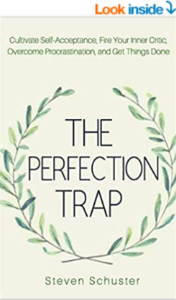The Truth About Criticism
The truth about criticism is that it’s almost always in your head.
Here’s an example from my personal experience…
In the last 9 months, my articles have been read by more than 1.2 million people (250,000+ on my site and over 1 million on other sites that publish my work).
Of those people, about 98% of people have read a particular article and moved on with their life. About 2% of people have read an article and decided to become part of our little community by joining my free newsletter. (Thank you! It’s great to have you here!) And about 0.0008% of people have sent me a hateful comment or email.
Even though the vast majority of readers were positive or neutral about my work, the critics were still heard loud and clear.
Apparently, the tendency to hold onto negative criticism is natural for most people. According to Roy Baumeister and researchers at Florida State University, we remember negative emotions much more strongly and in more vivid detail.
In a research paper titled, “Bad Is Stronger Than Good”, Baumeister summarizes academic studies that prove that we are more likely to remember negative criticism than praise. Baumeister found that even happy people tend to remember more negative events than positive ones. In fact, Baumeister and his team say that when it comes to your brain, it takes about five positive events to make up for one negative event.
I’ll talk about a strategy for getting over this in a moment. But first, I want to share some of the criticism I’ve received recently.
Pour Me a Glass of Haterade (My Most Hateful Comments)
Each month, there is usually someone who whines about how my articles are totally worthless. For example, one reader recently left a comment saying, “I should have known better than to waste time reading this.”

 For more about this subject, look inside:
For more about this subject, look inside:
 ↓
↓
 For more about this subject, look inside:
For more about this subject, look inside:
 ↓
↓